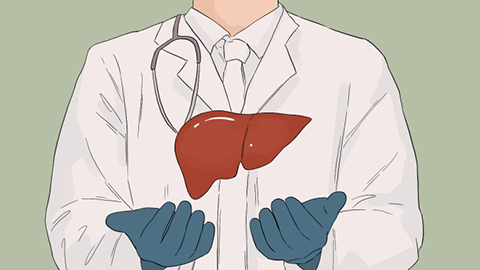What are the causes of liver fibrosis?
Generally, liver fibrosis may be related to long-term overexertion, unhealthy eating habits, lack of exercise, fatty liver disease, alcoholic liver disease, and other factors. It is recommended to seek timely medical advice, identify the underlying causes, and undergo symptomatic treatment under the guidance of a qualified physician. A detailed analysis is as follows:

1. Long-term overexertion
Long-term excessive fatigue can increase the burden on the liver, impairing its normal metabolic and repair functions, thereby increasing the risk of liver fibrosis. It is recommended to arrange work and rest periods reasonably to avoid excessive fatigue.
2. Unhealthy eating habits
High-fat and high-sugar diets can increase the liver's metabolic burden, promote fat accumulation in the liver, lead to fatty liver disease, and potentially progress to liver fibrosis over time. It is advisable to maintain a light diet and reduce consumption of fried, greasy foods and high-sugar products.
3. Lack of exercise
Insufficient physical activity can slow down the body's metabolism, cause fat accumulation, increase the risk of fatty liver disease, and possibly lead to liver fibrosis. It is recommended to engage in appropriate physical exercise to improve liver blood circulation and promote regeneration and repair of liver cells.
4. Fatty liver disease
Fatty liver disease is usually caused by environmental factors and metabolic stress. Excessive fat accumulation in the liver causes persistent liver damage, leading to hepatic steatosis and lipid metabolism disorders, which in turn promote the occurrence and progression of liver fibrosis. This condition is often accompanied by symptoms such as fatigue, loss of appetite, and liver area pain. Treatment typically follows medical advice using medications such as simvastatin tablets, atorvastatin calcium tablets, and polyene phosphatidylcholine capsules.
5. Alcoholic liver disease
Alcoholic hepatitis is commonly associated with long-term excessive alcohol consumption. Acetaldehyde, an intermediate metabolite of alcohol, not only directly damages the liver but also triggers metabolic disorders, inflammatory immune responses, and liver fibrosis. Symptoms typically include loss of appetite, nausea, and vomiting. Treatment generally follows medical guidance using medications such as reduced glutathione for injection, compound glycyrrhizin injection, and potassium chloride injection.
It is recommended to maintain healthy lifestyle habits, consume moderate amounts of foods rich in vitamins and amino acids such as apples and milk, and avoid eating preserved foods, processed foods, or mold-contaminated foods in order to protect liver health.




